Enabling sustainability through product innovation
Our commitment, capacity and drive to create cutting-edge technology set us apart. Our innovation investment strategy converts our scientific know-how into products that make a difference to some of the world's sustainability challenges.
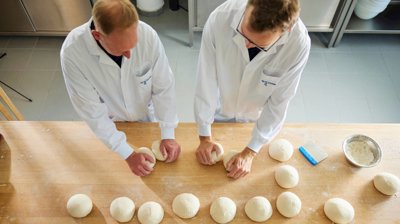
Unlocking the power of enzymes to reduce food waste
Packaged white bread keeps fresh for three more days by adding 50% more of AB Enzymes’ VERON® MAC enzymes, decreasing disposal rates from 24% to 19%. As well as reducing wasted bread, there’s a carbon saving from reducing food in landfill which contributes to greenhouse gases.
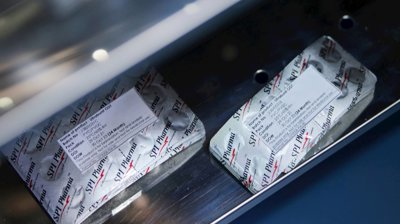
Resource-efficient pharmaceutical solutions
SPI Pharma’s UltraBurst™ is an innovative disintegrating tablet that dissolves in the mouth in under ten seconds without water. UltraBurst™ allows pharmaceutical manufacturers to make smaller tablets using fewer materials.
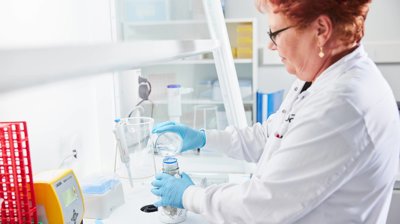
Energy reductions in paper manufacturing
When paper mills use AB Enzymes’ ECOPULP® R to refine virgin bleached fibre, they see an average energy saving of 20%, equating to a reduction in energy consumption of around 40kWh for each tonne of pulp processed. When added to virgin bleached fibre, the cellulase enzymes improve fibre bonding, making them easier to refine. As well as reduced energy consumption, this also leads to improved drainage, more efficient drying and, in some cases, increased productivity.
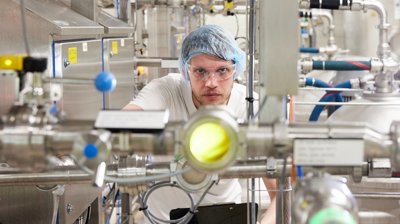
ClimatePartner certified yeast-based ingredients
Many of Ohly’s yeast-based ingredients are available with ClimatePartner certification to help their customers understand the carbon emissions associated with the sourcing, production and distribution.
Meanwhile, Ohly® is working to reduce its scope 1 and 2 emissions by decarbonising operations at its Hamburg site.
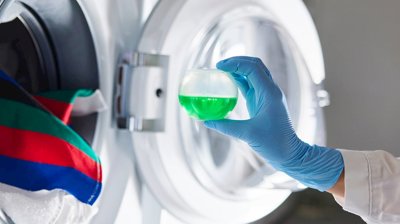
Helping consumers use less energy for laundry
Advances in protein engineering and molecular biology techniques have made it possible to wash clothes at lower temperatures without compromising cleaning performance.
Adding AB Enzymes’ BIOTOUCH® enzymes to washing detergents unlocks a potential saving of up to 120 kg of CO2e per 1,000 washing cycles1 because end-users can reduce the temperature and energy consumption needed for their laundry.
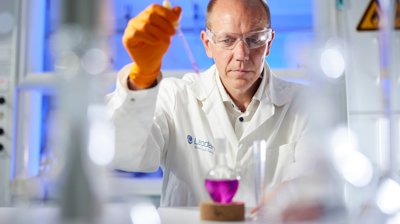
Rethinking emulsifiers for car wash rinse aids
Volatile Organic Compounds (VOC) can be harmful to human health. Traditionally, car wash rinse aids have relied on VOC formulas to perform effectively, but ABITEC Corporation found a way to reformulate emulsifiers creating low VOC drying aid products that still provide excellent freeze-thaw stability. The formulation means secondary emulsifiers are only sometimes necessary to maintain a stable, clear emulsion.
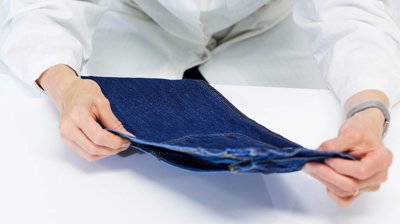
Saving water and energy in textile production
Manufacturing textiles is a water-intensive process. AB Enzymes' scientists have developed enzymes that mean textile manufacturers can bio-polish and dye fabric in the same bath – a process typically completed separately with double the water.
Adding cold cellulase enzymes to the bio-polishing process also means fabric manufacturers can make energy savings by reducing the water temperature from 50° to 30° Celsius.
1. Calculations are based on the emissions saving from the reduced energy consumption when using an average detergent and washing machine type with 164 cycles per household in Central Europe. The use of the enzyme results in an average reduction of 13°C in washing temperature compared to when using an average detergent, which equates to a reduction of 258 kWh electricity and 119kg avoided emissions per 1,000 washing cycles.
